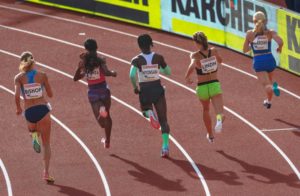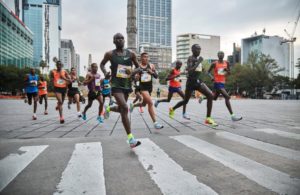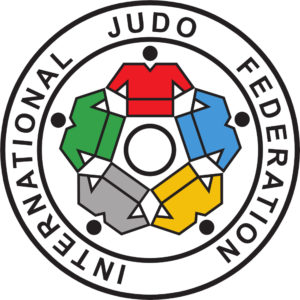
Fourth consecutive edition for KiSS Misano
KiSS (Keep it shiny and sustainable) is the FIM Flagship programme that makes the motorcycling events sustainable.





ISA Delighted With 6th Successful Tokyo 2020 Technical Visit
The International Surfing Association (ISA) has successfully conducted a sixth official visit to Tokyo ahead of the sport’s historic Olympic debut at the 2020 […]


Air quality to be measured and published in real-time at next IAAF meeting – Sustainability Report
Monaco’s Stade Louis II to host ‘first for athletics’ as International Federation demonstrates its commitment to air pollution awareness The IAAF will measure and […]





IAAF air quality pilot moves into its next phase following Mexico City Marathon project – Sustainability Report
Athletics federation tests air quality in a road race for the first time – and prepares to conduct clinical research with athletes when the […]





Madrid opts for water fountains, not bottles
The 2019 World Archery Youth Championships is the largest in the event’s history. Drinking enough water is essential – but especially so when competing […]


WT Cares Project for Sri Lankan Street Children Moves Forward as Scheduled
The World Taekwondo Cares project for Sri Lankan street children is moving forward as planned and is on track. The “Road to Champions” Sri […]



IJF joins the Sports for Climate Action Initiative
The International Judo Federation (IJF) has announced it has joined the United Nations Sports for Climate Action Initiative, having signed the Sports for Climate […]


Endurance running icon Paula Radcliffe on air quality and athlete performance Podcast
The long distance champion talks about competing in poor air quality with asthma, and how the IAAF is helping athletes mitigate the negative impact […]





Air quality Monaco Herculis 2019
Organisers of 2019 Herculis EBS IAAF Diamond League meeting on Friday are aiming to not only host another spectacular edition but also, for the […]





‘Net zero’ greenhouse gas emissions pledged by LA Clippers for new venue
Arena and surrounding entertainment district – expected to be built by 2024 – will be LEED Gold and have environmental sustainability “at the core […]

